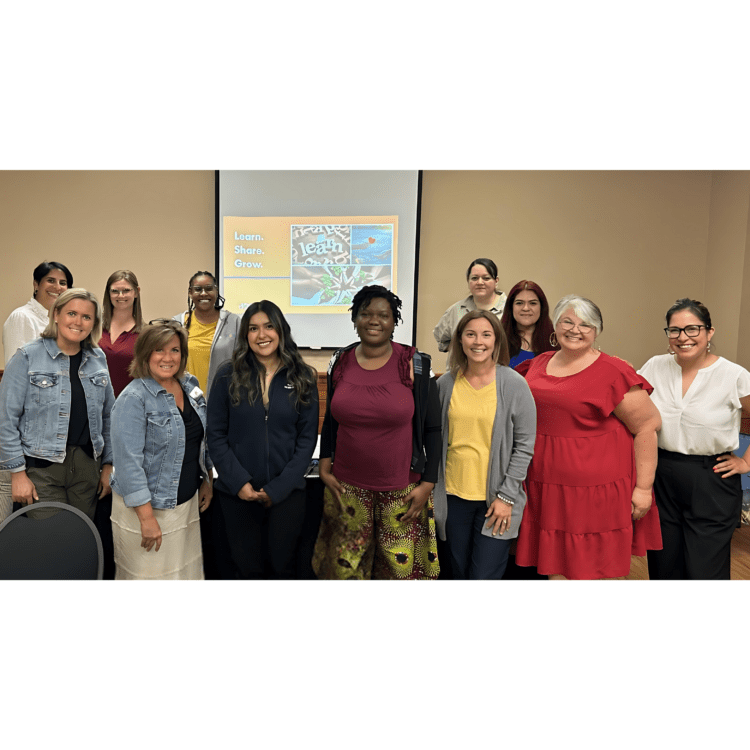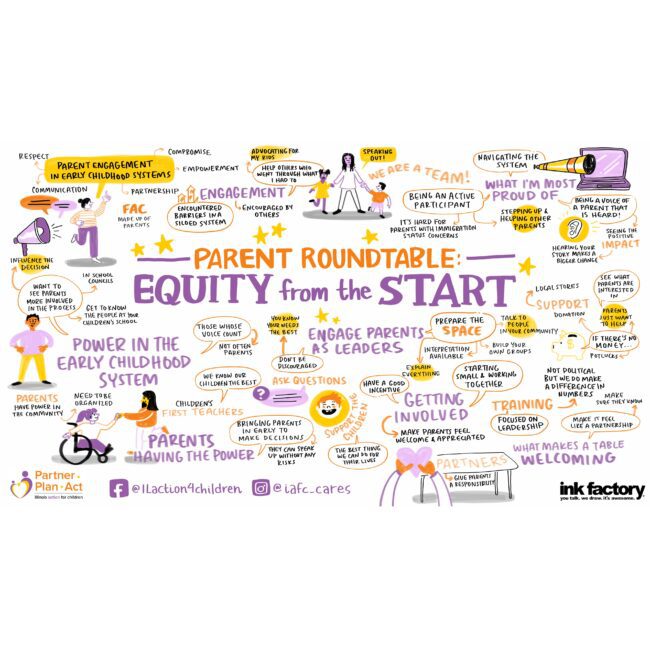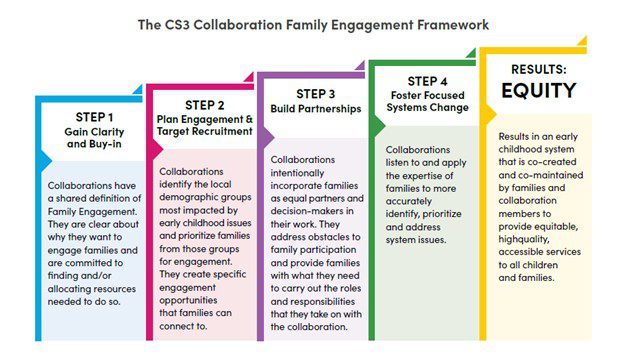Our Approach
Centering Family Engagement
Early childhood systems have excluded families for too long. Yet, research and experience demonstrate that families engaged in their children’s education result in better academic, social, and health outcomes for children and their families. Early childhood collaborations should be centering family engagement too.
Systems that engage, listen to, and act on family input can address systemic problems. We believe that families should be the most prioritized voice in collaborations work.


How We Define Engagement
The CS3 team defines family engagement in early childhood collaborations as both a process and an outcome.
- As a process – Family* engagement in early childhood collaborations is how early childhood stakeholders** build effective, authentic partnerships with families. It requires an intentional effort by early childhood stakeholders to provide families with the opportunities and supports needed to participate, inform, and influence community systems. Shared responsibility, decision-making power, and expertise are essential to community systems development work.
- As an outcome – Family engagement results in an early childhood system that is co-created and co-maintained by families and collaboration members to provide equitable, high-quality, accessible services to all children and families.
Clarifying Definitions:
*All adults who interact with early childhood systems in support of their child, including biological, adoptive, and foster parents; grandparents; legal and informal guardians; and adult siblings.
**Individuals or groups vested in early childhood education and care outcomes.
Centering Family Engagement is a Journey
We understand that developing family engagement structures is a journey that evolves with each unique collaboration and community. That’s why our resources, including the handbook and online courses, are just starting points. They are part of a broader, ongoing effort to develop effective early childhood systems that genuinely work towards equitable outcomes for all children and their families.

The CS3 Collaboration Family Engagement Framework outlines the steps, and accompanying strategies, an early childhood collaboration can take to begin or deepen its engagement. The Framework demonstrates how a collaboration can engage families to help create a more equitable early childhood system.
Family Voices
“I’m able to, I think, kind of bridge or like be a like a bridge or a conduit between the different early child organizations just because I exist in the middle part like that.” –Collaboration Family Leader
“I have gone to [collaboration] meetings, but everyone was there representing something, an agency or a group. They have an agenda. It would be different if I was there representing a group of parents with other parents. I just listen and learn because I don’t feel my words have any weight, I was alone. I just took the information back. We go and learn from presentations; I don’t feel like I’m bringing anything to that space.
Each one of us has gifts and talents that are meant to be a part of everything that happens in this world and it doesn’t matter if it’s a small thing or a big thing. It’s equally important to what we’re all trying to accomplish and that’s the best for our children.” – Collaboration Family Leader
“[Parents’] needs are very different because each parent is very different. But sometimes there’s one [need] in common and that’s what we can work on.” –Collaboration Family Leader
Family Engagement Handbook
The CS3 team partnered with ten community collaborations across the state to bring you the revised second edition of the Family Engagement Handbook: Engaging Families in Early Childhood Collaborations.
This second edition has all the incredible components of the first, with an updated family engagement framework, explicit tools for equitable recruitment, and much more!
More Resources
Access our tool kits and on-demand learning courses to gain a deeper understanding of the role of family engagement in community systems development.